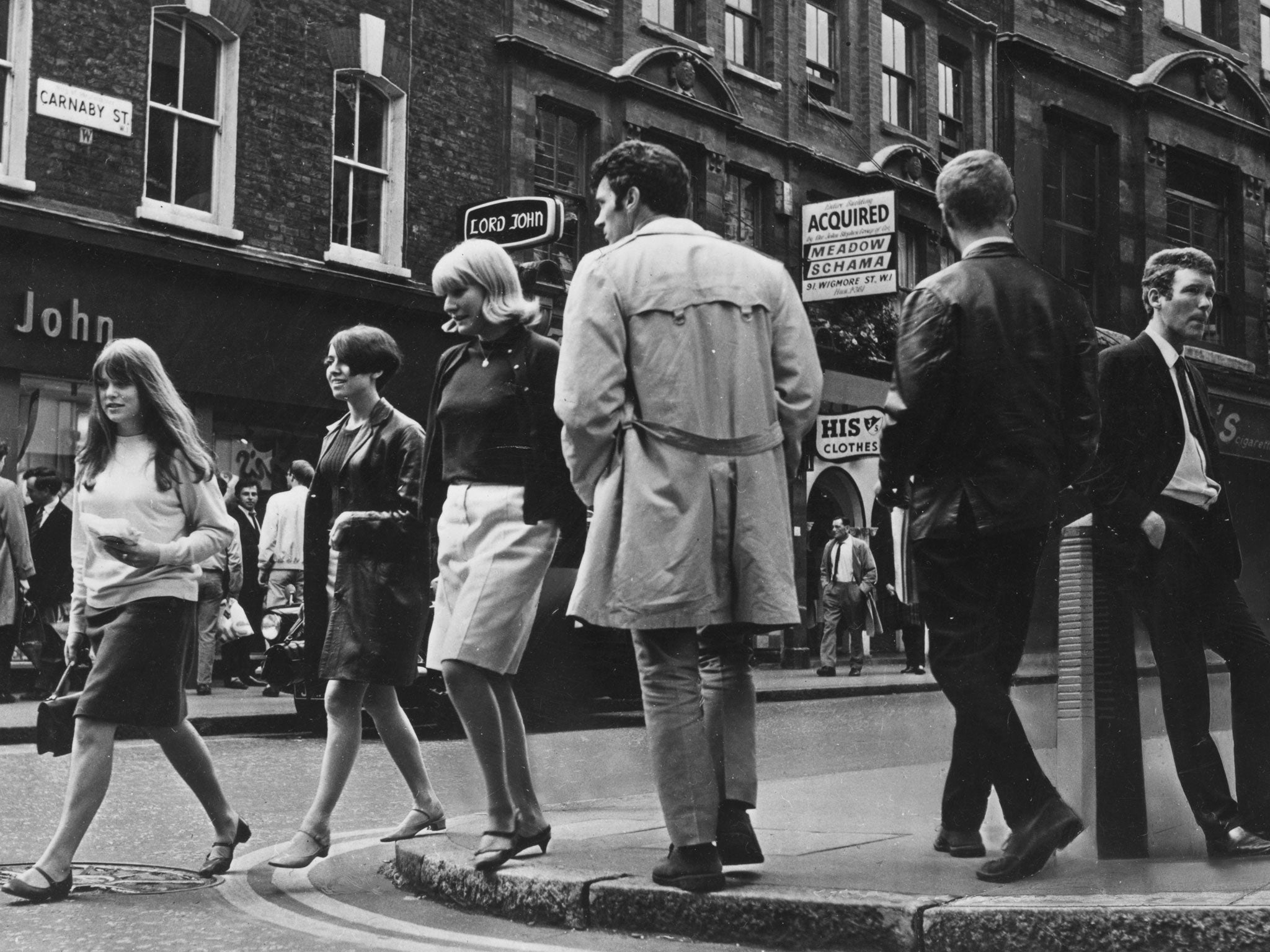Freya by Anthony Quinn, book review: Sentences and thoughts that purr on to the page
From post-war austerity to the sixties, this novel is alive to the smallest generation gaps

Your support helps us to tell the story
From reproductive rights to climate change to Big Tech, The Independent is on the ground when the story is developing. Whether it's investigating the financials of Elon Musk's pro-Trump PAC or producing our latest documentary, 'The A Word', which shines a light on the American women fighting for reproductive rights, we know how important it is to parse out the facts from the messaging.
At such a critical moment in US history, we need reporters on the ground. Your donation allows us to keep sending journalists to speak to both sides of the story.
The Independent is trusted by Americans across the entire political spectrum. And unlike many other quality news outlets, we choose not to lock Americans out of our reporting and analysis with paywalls. We believe quality journalism should be available to everyone, paid for by those who can afford it.
Your support makes all the difference.There aren’t many novelists who can get away with using ‘withal’, not to mention ‘phocine’, and not raise eyebrows. Then again, there aren’t many novelists with smoother, more elegant prose styles than Anthony Quinn. His sentences practically purr on the page: ‘They had been waiting for this day like a prisoner who has heard a rumour of his release, yet still dares not believe it, so often has the hope been dashed.’ The perfectly balanced clauses weigh the thrilled anticipation, and oft-deferred joy, of peace after World War Two, which kickstarts this immensely enjoyable continuation of Quinn’s previous book, Curtain Call.
Freya follows the subsequent generation of the characters (the philandering painter Stephen Wyley, the bibulous critic James Erskine) who graced that story. Freya has grown up from the precocious, intense child we glimpsed in Curtain Call. Having served energetically in the Wrens, she belatedly takes up the place reading English at Oxford the war had delayed. Intelligent, pugnacious, funny and volatile, the latter thanks to her parents’ imminent divorce, Freya cements a friendship with Nancy, an aspiring novelist possessed of ever-increasing Pre-Raphaelite looks.
Despite its fairly regular downs and ups, this relationship shapes to Freya’s chaotic existence. Moving from post-war austerity to 1960s swing-time, this is a novel alive to the smallest of generation gaps. The war inserts the first experiential schism, expressed by Freya in noticeably poetic terms: ‘She had thought of her life as a line divided into two parts, with September 1939 as the caesura.’ This lacuna made Freya a woman (in terms of responsibility, character, sex and friendship), propelling her beyond the couple of years she has on the girlish, if determined Nancy.
Always looking to be ahead of her time, Freya scuttles her academic career by absconding to Nuremberg in the hopes of interviewing the pioneering but reclusive war correspondent Jessica de Vaux. She gets her woman, and a job writing for the London Chronicle, but is sent down much to her father’s displeasure.
Freya’s big break also coincides with her first big break-up. Both she and Nancy fell for the chippy, narcissistic charms of Robert Cosway. Freya illicitly won the day, but breaks Nancy’s heart in the process. They eventually patch things up and live together in London, pursuing their respective writerly dreams. It isn’t long before Cosway hoves into view, along with two other Oxford alumni: Alex McAndrew, whose dual existence doubles as the plot’s unexploded bomb; and Nat Fane, a dead-ringer for Kenneth Tynan minus the criticism. Fane’s louche, lugubrious and epigrammatic persona is Quinn’s prose made flesh: ‘Vera – la vieille dame sans merci,’ he drawls about the ageing proprietor of a dingy Soho members’ club. Fane is great fun, paddling against the tide and more besides. Quinn just about restrains him to a supporting role, which maximizes the joy of his every appearance and prevents him becoming tiresome.
In any case, Freya is the genuine star turn, fighting inequality in the workplace, learning hard lessons often of her own making and maintaining a sense of integrity as all about are selling theirs for money or power. The glacial fury of her encounter with the slimy Cosway, now a fast-rising Labour MP, is beautifully accomplished. Indeed, for all the loving historical touches, Freya feels eerily contemporary: espionage, a press terrified by new technology (here television), a world obsessed by celebrity and drugs, London in a state of constant re-construction, women increasingly visible in public life without fair reward, and still expected to be full-time wives and mothers.
Such grand narratives aren’t so much imposed as slipped in your breast pocket thanks to a plot that is effortlessly entertaining and gracefully thought-provoking. In this, Quinn meets his own description of the quietly devastating V-2 rockets that Hitler fired from Holland: ‘bombs with slippers on.’ Sometimes it really is the quiet ones you have to look out for.
Jonathan Cape, £15.99. Order at £13.99 inc. p&p from the Independent Bookshop
Join our commenting forum
Join thought-provoking conversations, follow other Independent readers and see their replies
Comments